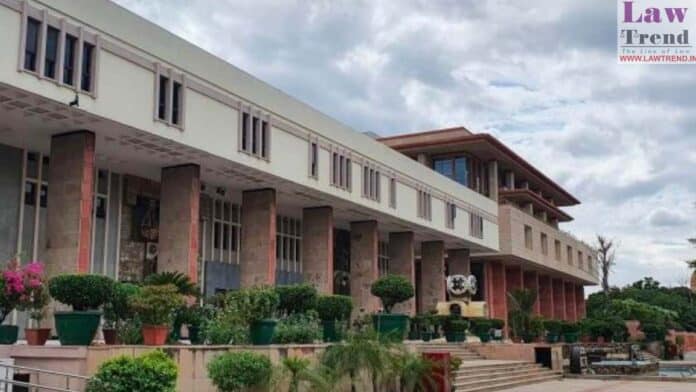Delhi High Court on Monday directed the National Consortium for Research, Development and Therapeutics for rare diseases to hold a meeting and give recommendations regarding funding of clinical trials for DMD, a rare disease.
The high court said the consortium, which shall hold the meeting by March 26, is free to call for participation any other agency or person whom it deems appropriate to be required for making the recommendations, which shall be comprehensive in nature.
The consortium shall consider the age of children whose lives may be completely curtailed if treatment is not commenced and the expenses, which may be incurred for providing the medicines, it said.
The consortium shall deal with the possibility and feasibility of exploring indigenous therapies in the already-approved trials and any negotiation or arrangement to be entered into with the companies who already have approved therapies for rare diseases in India.
Justice Prathiba M Singh said the consortium shall then place its recommendations before the court in respect of funding for the clinical trials and also the manner in which an earlier court order is to be implemented.
In December 2021, the court had directed the All India Institute of Medical Sciences (AIIMS) to forthwith start treatment of eligible children suffering from rare diseases and asked the Centre to provide funds, saying it was painful to see kids in this situation and that they could not be made to suffer.
The petitioners before the court are children suffering from several rare diseases, including Duchenne Muscular Dystrophy (DMD) and Mucopolysaccharidosis II or MPS II (Hunter Syndrome). They have sought directions to the Centre to provide them with uninterrupted and free treatment as the therapy for these diseases is very expensive.
DMD, one of the various forms of muscular dystrophy, is a rare genetic disease that almost exclusively affects boys and causes progressive weakness. MPS II is a rare disease that is passed on in families and it mainly affects boys and their bodies cannot break down a kind of sugar that builds bones, skin, tendons and other tissues.
During the hearing, the court was informed that four candidates have been found to be capable of being included in the clinical trials and they will be physically examined and requisite tests conducted on March 9 (Thursday).
The doctor concerned from AIIMS submitted that the parents of the children would also be informed about the details regarding the trials, which can be commenced if they agree.
The court was informed by the doctor that a clinical trial is being conducted here by ‘M/s Sarepta’ with a few patients, including one of the petitioners, and the company has now sought permission from the authorities for inducting more patients.
The court asked AIIMS to file a status report regarding the treatment of these children.
It also said that in the meeting of the consortium, the other Centres for Excellence (CoE) can also be consulted to see the estimate of candidates who will require medicines for treatment of rare diseases in the entire country.
The high court had earlier expressed displeasure over being “kept in dark” about an ongoing trial here for DMD when it was dealing with issues pertaining to its indigenous treatment on petitions by several affected children.
The court had said the petitioners before it could have participated in the trial had it been informed about it earlier and asked AIIMS to give a report with respect to the possibility of the children participating in the trial after their evaluation.
Last year, the court had observed that DMD being a rare disease prevalent in a large number of patients in India, indigenous development of therapy was extremely crucial in order to avoid investment on expensive medication, which is also not easily available in India.
It had said the consortium should consist of the Department of Biotechnology, Indian Council of Medical Research, Council of Scientific and Industrial Research, Drugs Controller General of India other related ministries and departments and look after research, the development of indigenous treatment, manufacturing of drugs and inclusion of persons in clinical trials.
In December 2021, the court had directed AIIMS to start the treatment of eligible children suffering from rare diseases and asked the Centre to provide funds, saying it was painful to see kids in this situation and they could not be made to suffer.
It had said the direction to AIIMS and other CoE to commence medical treatment of these children would include procurement of medicines, the expense for which would be borne by the central government and the funds given to the CoE.
Earlier that year, the court had passed a slew of directions in connection with the treatment of persons with rare diseases, including a direction to notify the National Health Policy for Rare Diseases by March 31, 2021, and setting up a National Consortium for Research, Development and Therapeutics, a rare diseases committee at AIIMS and a fund for such ailments.
This year, the court directed the Centre to release Rs 5 crore to AIIMS for treatment of children suffering from rare diseases.




